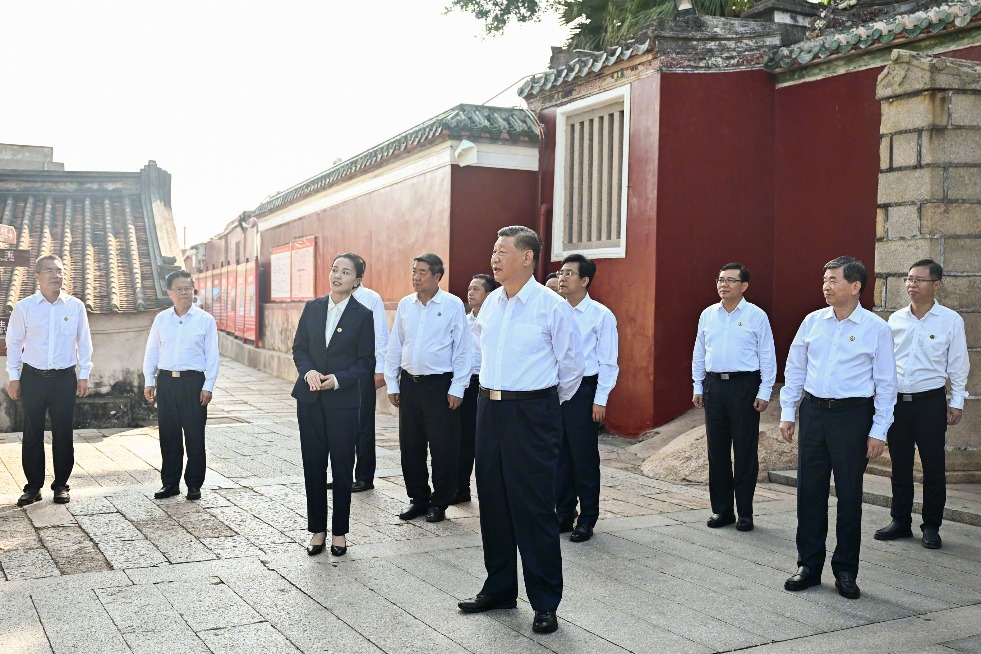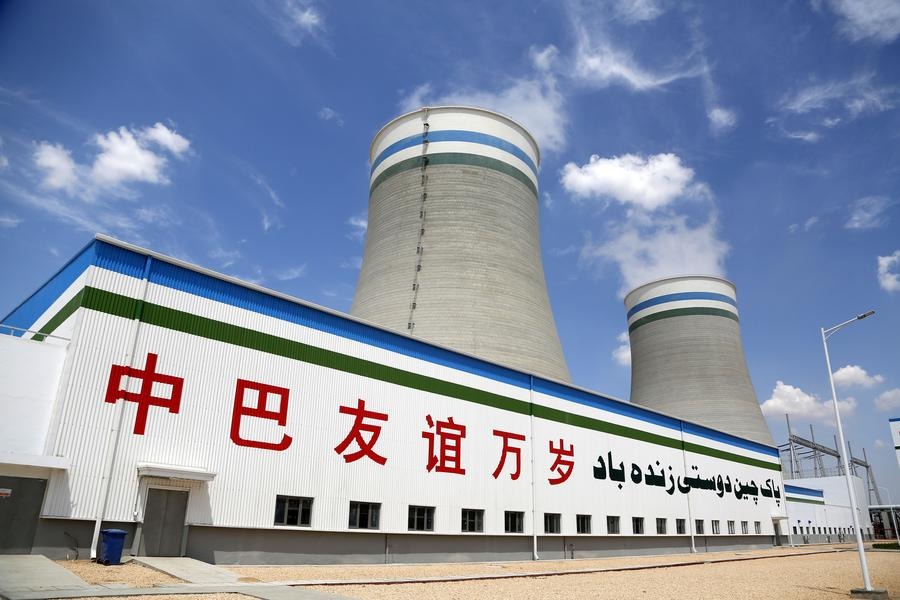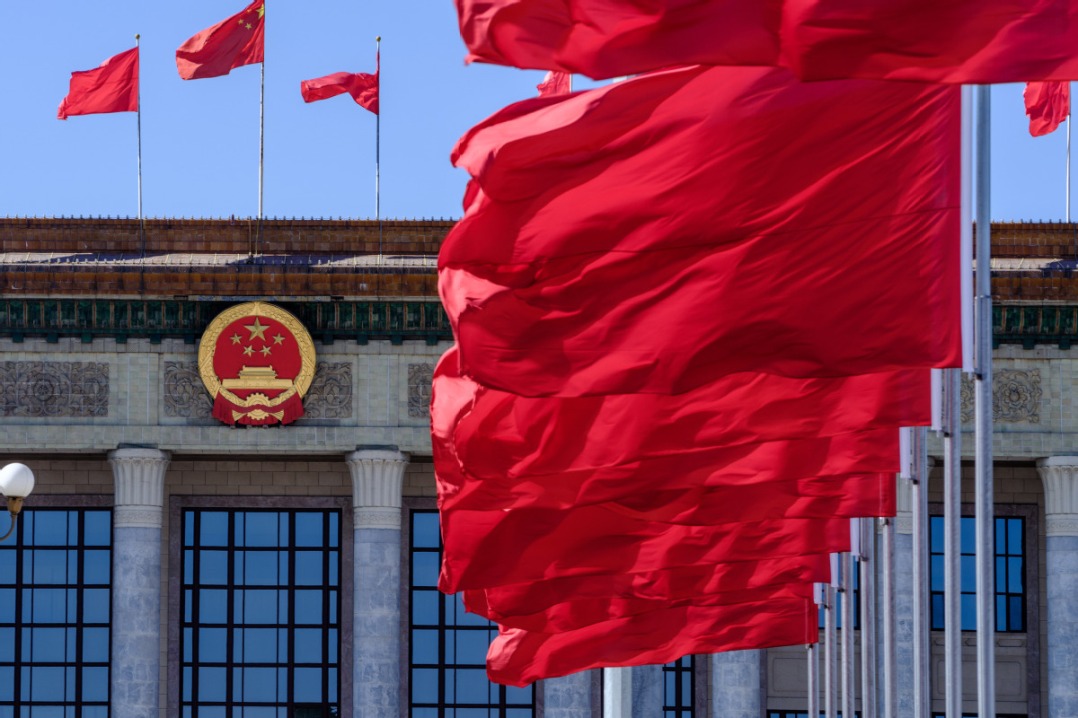A golden voyage to enhance ties
China and Hungary should oppose decoupling and steer bilateral cooperation to promote sound and stable development of China-EU relations


The escalating major-country competition, geopolitical and energy crises and global supply chain disruptions are posing numerous challenges for China-EU cooperation. However, China and the European Union share extensive common interests, which creates vast space for bilateral practical cooperation. Strengthening bilateral cooperation has an irreplaceable role to play in boosting economic growth for both sides and benefiting the two peoples and the neighboring regions.
Back in 2010, Hungary launched an economic strategy called "Opening to the East". In 2015, Hungary became the first European country to sign a Belt and Road cooperation document with China. The successful docking of the China-proposed Belt and Road Initiative and Hungary's "Opening to the East" strategy has advanced interconnectivity and economic integration between China and Hungary, and even throughout the Eurasian continent, becoming a stellar example of sharing development opportunities for common prosperity.
According to statistics from Eurostat, the bilateral trade volume between Hungary and China was $8.67 billion in 2013. China is the 15th-largest export market and the third-largest source of imports for Hungary.
According to Hungarian statistics, the bilateral trade volume between the two countries exceeded $13 billion in 2023. China's direct investment in Hungary reached 7.6 billion euros ($8.2 billion) last year, accounting for 58 percent of the total foreign direct investment in the country and creating more than 10,000 jobs. The bilateral trade volume has increased by nearly 50 percent in 10 years, outpacing the growth of China's trade with other EU member states.
China has now become Hungary's largest trading partner outside Europe and its most important investment partner. Hungary is closely connected to China through the China-Europe Railway Express, making Hungary the golden hub of the logistics and transport corridor between China and Europe.
Looking ahead, under the strategic leadership of the two heads of state, China and Hungary should forge greater synergy between the BRI and Hungary's "Opening to the East" strategy to inject sustained vitality into integrated economic and social development between China and Hungary as well as between China and Europe at large.
Boosting connectivity is the key to jointly building the Belt and Road. The China-Europe Railway Express has opened up a new channel for land-based transport between Asia and Europe, becoming an important trade and logistics artery connecting the two continents. Furthermore, in the face of adverse impacts from the COVID-19 pandemic and the Red Sea crisis, it has become a stabilizing force for safeguarding global supply chain security in a turbulent world. As a flagship project under the BRI, the Hungary-Serbia railway will not only benefit Hungary and Serbia, but also boost the economic growth of the entire region.
At present, as there is growing demand in the world for investment in infrastructure, cooperation in this area between China and Hungary and between China and Europe holds huge potential. Infrastructure connectivity can make up for the shortcomings in economic development and promote more countries to unleash new growth momentum.
In the meantime, investment in infrastructure construction has become more complicated than ever before because it has been colored by ideologies and so-called "democratic values".
It should be noted that in an era of globalization, infrastructure is crucial to Eurasian connectivity and regional economic integration. The world needs more infrastructure and larger and broader value and supply chains to serve the rapidly-increasing flows of people, commodities, goods, data and capital.
The China-Europe Railway Express has connected regional economies that are otherwise fragmented, promoted trade and investment growth and industrial transfer among countries along the routes, and created important platforms for trade and industrial cooperation, which inject sustained impetus into economic development.
Green and low-carbon development has become a general trend of global sustainable development, and BRI cooperation in green development has made positive contributions to the global green transition. However, some politicians in some countries have recently started a smear campaign to falsely allege "overcapacity" in China's new energy vehicles, lithiumion batteries and photovoltaic products.
Europe's green energy transition has also been hampered by geopolitical factors. Thus, it is in the interests of Hungary and Europe to strengthen cooperation with China in green and low-carbon development.
In recent years, China's EV and battery makers represented by CATL, EVE Energy and Nio have invested and built factories in Hungary, promoting Hungary's transformation from traditional automobile manufacturing, which serves as an important pillar of the economy, to the EV industry. This has contributed significantly to Hungary's economic restructuring and become an example of win-win cooperation between China and Europe in the automobile industry chain.
In October 2023, President Xi Jinping announced eight major steps China will take to support high-quality Belt and Road cooperation. China and Hungary signed five cooperation documents, involving the priority cooperation project list for Belt and Road cooperation, industrial and investment cooperation, green and low-carbon development cooperation, exchange and cooperation in economic development policies, and cooperation in the digital economy. The two countries are committed to strengthening in-depth integration between the BRI and Hungary's "Opening to the East" policy by jointly promoting cooperation projects in the fields of infrastructure, industrial investment, scientific and technological research and development, etc.
The two countries are promoting the exchange of governance experience, and focus on the sharing of best practices in macroeconomics, industrial development, development planning and innovation systems.
In accordance with the enterprise-led, government-guided, commercially operated and mutually beneficial principles, the two countries are jointly promoting industrial and investment cooperation in their respective markets and in third-party markets. They are also promoting cooperation in various fields to benefit the two countries and other countries and regions in Europe.
China and Hungary should adhere to openness and inclusiveness, jointly promote the liberalization and facilitation of trade and investment, strengthen communication and coordination in multilateral mechanisms, jointly practice true multilateralism, and safeguard international fairness and justice. The two countries should oppose any decoupling and breakage of the supply and industry chains, jointly respond to all kinds of risks and challenges, and jointly steer bilateral cooperation in the right direction, so as to promote the sound and stable development of China-EU relations.
The author is a research fellow at the World Economics Department under the China Center for International Economic Exchanges. The author contributed this article to China Watch, a think tank powered by China Daily. The views do not necessarily reflect those of China Daily.
Contact the editor at editor@chinawatch.cn.


































